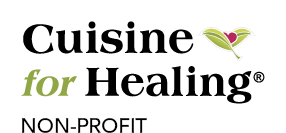Cooking is an essential part of daily life, but the cookware we use can sometimes pose hidden dangers to our health. Treated cookware, which includes non-stick, ceramic-coated, and aluminum, has become increasingly popular due to its convenience and affordability. However, many of these types of cookware are treated with chemicals that can leach into our food and have potential health risks.
- Non-Stick Cookware: Non-stick cookware is coated with a synthetic polymer called polytetrafluoroethylene (PTFE), commonly known as Teflon. When non-stick cookware is heated to high temperatures, the coating can break down and release toxic fumes into the air. These fumes can cause flu-like symptoms in humans and can be fatal to pet birds. Additionally, PTFE has been linked to an increased risk of cancer and other health issues.
- Ceramic-Coated Cookware: Ceramic-coated cookware is coated with a layer of ceramic material to provide a non-stick surface. While ceramic coatings are generally considered safe, some ceramic coatings may contain heavy metals such as lead, cadmium, and arsenic, which can leach into food and pose health risks. Prolonged exposure to these heavy metals can lead to serious health issues, including organ damage and cancer.
- Aluminum Cookware: Aluminum cookware is lightweight and conducts heat well, making it a popular choice for many cooks. However, aluminum is a reactive metal that can leach into food, especially when cooking acidic foods such as tomatoes or vinegar. High levels of aluminum in the body have been linked to an increased risk of Alzheimer’s disease and other neurological disorders.
How to Minimize the Risks:
- Choose safer alternatives: Opt for cookware made from stainless steel, cast iron, or glass, which are considered safer alternatives.
- Avoid high temperatures: When using non-stick cookware, avoid cooking at high temperatures, as this can cause the coating to break down and release toxic fumes.
- Use wooden or silicone utensils: To avoid scratching the surface of your cookware, use wooden or silicone utensils instead of metal utensils.
- Replace damaged cookware: If your cookware becomes scratched or damaged, replace it to avoid the risk of chemicals or metals leaching into your food.
While treated cookware may offer convenience and affordability, it also comes with hidden dangers to your health. At Cuisine for Healing we only cook with safe cookware options and never comprise the health and safety of our clients and staff to save a buck, even if it requires extra scrubbing. Rest assured all your favorite meals and treats contain only the healthiest, most delicious ingredients and never any added cookware chemicals.









